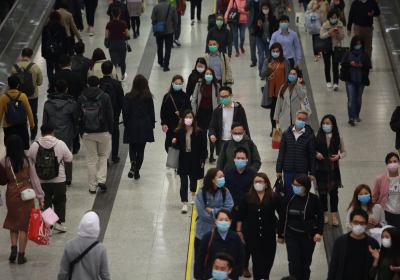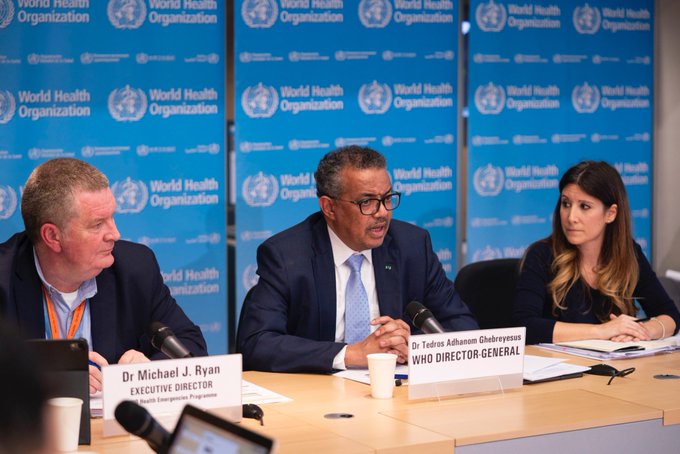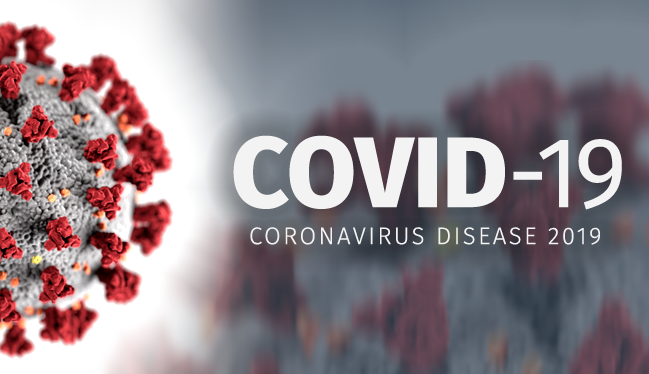
The world is currently at its trying times, with the rapid increase in the number of infected residents from different countries and the fatality that is continuously growing, COVID-19 Virus is something should be taken seriously. The battle against this type of virus is not an easy challenge not just for a regular citizen but most especially for health practitioners who are more exposed to this infectious and fatal disease and to the national government who are implementing precautionary measures to control the wide-spread of the virus. No one has seen this coming, all we have to do now is to fight the contagious infection.
We all learned the bits and pieces of lessons about Corona Virus and how did it put everyone to test. Moving forward, we were more educated and prepared about this disease and the preventive measures in battling this type of illness.
Before we go through the proper ways to avoid the mentioned disease, let us talk about the virus itself and its origin. What is Corona Virus? Coronaviruses (CoV) are a large family of viruses that cause illness ranging from the common cold to more severe diseases as Middle East Respiratory Syndrome or MERS-CoV and Severe Acute Respiratory Syndrome or SARS-CoV. Coronavirus disease (COVID-19) is a new strain that was discovered in 2019 and has not been previously identified in humans.
Coronaviruses are zoonotic or transmitted between animals and people. Its common symptoms include respiratory symptoms, fever, cough, shortness of breath and breathing difficulties. In more severe cases, the infection can cause pneumonia, severe acute respiratory syndrome, kidney failure, and even death.
How COVID-19 spreads:

- From one person to another. The virus spreads mainly from person-to-person
- Between people who are in close contact with one another
- When an infected person coughs or sneezes produces respiratory droplets. These droplets can touch the mouth or nose of people who are nearby or can be possibly inhaled by lungs.
- Contact with contaminated surfaced or objects. The possibility is high if a person touches a surface or object that has a coronavirus on it and then touches his mouth, nose or eyes.
The virus that causes COVID-19 seems to be spreading easily and sustainably in the community where people have been infected with the virus in an area, including people who are not sure how or where they have been infected.
There is currently no vaccine or treatment for this disease. Symptoms of the virus usually go away on their own.
World Health Organizations have already released statements or recommendations on how to prevent the spreading of this infection:

- Limit your contact with people outside your family as much as possible.
- Avoid non-essential gatherings
- Frequently wash your hands
- Avoid crowded places such as concerts, arenas, conferences, and festivals
- Limiting contact with people who have poor health
- Avoid common greetings, such as handshakes, hugs, and the likes
- Maintain at least six feet distance between yourself and anyone outside your family.
- Clean your hands often with soap and water for at least 20 seconds especially after you have been in a public place or after blowing your nose, coughing, or sneezing and throw used tissues in the trash.
- If soap and water are not readily available, use a hand sanitizer that contains at least 70% alcohol. Cover all surfaces of your hands and rub them together until they feel dry.
- Avoid touching your eyes, nose, and mouth with unwashed hands.
- Avoid close contact with people who are sick.
- During a COVID-19 outbreak in your community, stay at home to further reduce your risk of exposition to the virus. This is especially important for people who are at higher risk of getting very sick.
- Stay at home if you are sick, except you are getting medical care.
- Clean and disinfect frequently high-touch surfaces daily in your homes, such as counters, tabletops, doorknobs, bathroom fixtures, toilets, phones, keyboards, tables, faucets, sinks, and bedside tables.
- If surfaces are dirty, clean them with detergent or soap prior to disinfection.
- If a family member or a friend has traveled outside your country, it is recommended to self-isolate themselves for 14 days. These efforts will contribute to slow down the introduction and spread of the disease.
These common household disinfectants that will work and are appropriate for the surface are:
- Diluting your household bleach.
- Household solution mix is composed of 5 tablespoons (1/3 cup) bleach for every gallon of water or 4 teaspoons of bleach for every quarter of water. Just follow the instructions written at the back of the bleach’s bottle for application and proper ventilation. Check its expiration date to ensure that the bleach will be effective in disinfecting against coronaviruses.
- Alcohol solution that has at least 70% alcohol.
- Wear a face mask
- If sick: wear a facemask when there are other people around and before entering a health care provider’s office. Whether unable to wear a facemask, then do your best to cover coughs and sneezes. People who are accompanying or taking care of you should wear a facemask upon entering your room.
- If not sick: no need to wear a facemask unless caring for someone who is sick and to go out to do some important errands.
You might also want to read: How to Entertain Yourself During Quarantine?
Comments
0 comments


Today, while I was at work, my sister stole my iPad and tested to see
if it can survive a 25 foot drop, just so she can be a youtube sensation. My apple ipad
is now destroyed and she has 83 views. I know this is
entirely off topic but I had to share it with someone!
Thanks for sharing. I read many of your blog posts, cool, your blog is very good.
Your article helped me a lot, is there any more related content? Thanks! https://accounts.binance.com/de-CH/register?ref=V2H9AFPY
mexico pharmacies prescription drugs: online mexican pharmacy – buying from online mexican pharmacy
mexican rx online
https://cmqpharma.online/# mexican online pharmacies prescription drugs
buying from online mexican pharmacy
hello there and thank you for your info – I have definitely picked
up anything new from right here. I did however expertise several technical issues using this website, since
I experienced to reload the site many times previous to I
could get it to load properly. I had been wondering if
your hosting is OK? Not that I am complaining, but slow loading instances times will often affect your placement
in google and can damage your high-quality score if ads and marketing with
Adwords. Anyway I’m adding this RSS to my email and could look out for much more of your respective
exciting content. Make sure you update this again very soon..
Escape rooms
Hello, i feel that i noticed you visited my web site thus i
came to go back the favor?.I’m trying to to find issues to enhance my site!I assume its ok to make use of a few of your concepts!!
https://foruspharma.com/# mexican mail order pharmacies
Online medicine order Online medicine home delivery online shopping pharmacy india
mexican pharmaceuticals online mexican drugstore online purple pharmacy mexico price list
http://foruspharma.com/# medication from mexico pharmacy
indian pharmacies safe reputable indian pharmacies online shopping pharmacy india
https://indiapharmast.com/# pharmacy website india
mexican pharmacy mexican pharmaceuticals online pharmacies in mexico that ship to usa
This is a topic that’s close to my heart… Cheers! Exactly where can I find the contact details for questions?
how to buy cheap clomid online: cost generic clomid now – can you get clomid pills
Greetings! Very helpful advice within this article! It’s the little changes which will make the biggest changes. Thanks for sharing!
Can you be more specific about the content of your article? After reading it, I still have some doubts. Hope you can help me.
Nice post. I learn something new and challenging on blogs I stumbleupon on a daily basis. It’s always interesting to read content from other authors and practice a little something from their sites.
cost of generic clomid pill: can i order clomid for sale – how to buy generic clomid for sale
A motivating discussion is definitely worth comment. There’s no doubt that that you should publish more about this subject matter, it may not be a taboo subject but usually people don’t talk about these issues. To the next! Kind regards!
Greetings! Very useful advice within this article! It’s the little changes that produce the biggest changes. Many thanks for sharing!
can i purchase clomid without rx: cost of clomid without insurance – cost of clomid pills
Your style is very unique compared to other folks I’ve read stuff from. Many thanks for posting when you have the opportunity, Guess I’ll just bookmark this page.
where can i buy cipro online: buy cipro without rx – buy cipro without rx
Everything is very open with a very clear description of the challenges. It was truly informative. Your website is very useful. Thanks for sharing!
After looking over a handful of the blog posts on your website, I really appreciate your way of writing a blog. I added it to my bookmark website list and will be checking back soon. Take a look at my web site too and let me know your opinion.
paxlovid pharmacy: п»їpaxlovid – paxlovid cost without insurance
Hello! I just would like to offer you a huge thumbs up for the excellent info you have got right here on this post. I’ll be coming back to your web site for more soon.
Your style is so unique in comparison to other people I have read stuff from. Thanks for posting when you have the opportunity, Guess I will just bookmark this site.
buy amoxicillin 500mg online: amoxicillin online pharmacy – amoxicillin no prescipion
can i buy clomid no prescription: clomid no prescription – cheap clomid
Hi! I could have sworn I’ve visited this site before but after going through a few of the articles I realized it’s new to me. Anyways, I’m definitely happy I discovered it and I’ll be book-marking it and checking back frequently.
doxycycline 2984: doxycycline 1mg – can i buy doxycycline over the counter in south africa
I need to to thank you for this wonderful read!! I absolutely enjoyed every bit of it. I’ve got you book marked to look at new stuff you post…
I must thank you for the efforts you’ve put in penning this blog. I’m hoping to view the same high-grade blog posts from you in the future as well. In fact, your creative writing abilities has encouraged me to get my very own site now 😉
Everything is very open with a really clear description of the challenges. It was truly informative. Your website is very helpful. Thank you for sharing.
This website was… how do you say it? Relevant!! Finally I’ve found something which helped me. Kudos!
buy cipro online: buy ciprofloxacin over the counter – buy cipro cheap